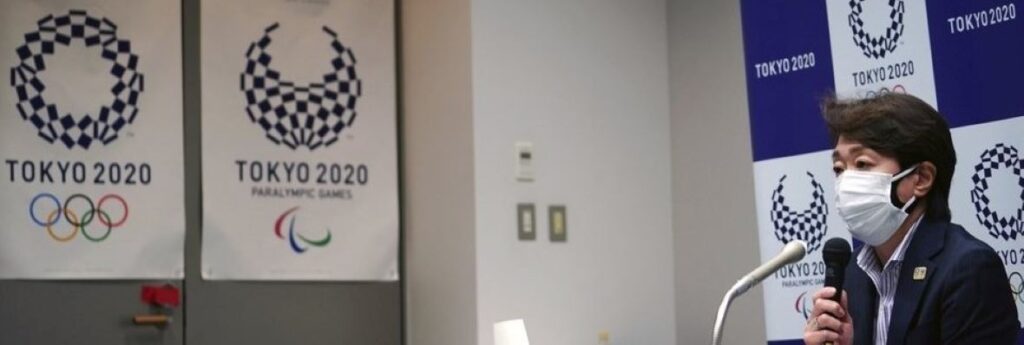The Tokyo Olympics and the International Olympic Committee have banned fans and volunteers from abroad with the games opening in four months. It’s part of the fallout from holding the Olympics in the middle of a pandemic.
IOC President Thomas Bach said he was “sorry” when the decision was announced. In truth, what matters to the IOC — like any sports business that relies for most of its income on selling broadcast rights — is getting the Olympics on television. Broadcast rights in the latest four-year Olympic cycle accounted for 73 percent of the IOC’s income. That broadcast income amounts to about US $4 billion with American network NBC paying about half.
The IOC must get the 11,000 athletes into the venues and in front of cameras. Japanese residents will fill the stands to whatever level is allowed. The decision on venue capacity will come next month.
But barring fans from abroad has created collateral damage and lots of questions.
Refunds
Ticket sales for fans from abroad is handled by so-called “authorized ticket resellers” scattered across the globe. They are typically appointed by national Olympic committees and work as middlemen. They are allowed to tack on service fees of up to 20 percent on tickets. They also sell pricey package deals including hotels.
It’s likely the actual ticket price will be refunded, although the timeline is anyone’s guess. The fees may be more difficult to recover.
Tokyo organizing committee CEO Toshiro Muto has already said his body is not responsible for refunds on hotels or airline flights.
Muto said 600,000 Olympic tickets had been sold to fans aboard. This pales in comparison to the 4.45 million sold to Japan residents. Organizer said 7.8 million tickets would be available when ticket sales started several years ago.
Muto seemed to rule out fans entering who may have received tickets from sponsors.
“If they are part of the operation of the games, if they are somewhat involved in the operation then there is still a possibility they may be able to enter into Japan,” Muto said. “But solely as spectators for watching games — no, they will not be allowed to make an entry.”
Japan has attributed fewer than 9,000 deaths to COVID-19 and has handled the pandemic better than most countries its size. A state of emergency was lifted on Sunday for Tokyo and three adjacent prefectures. Cases are expected to start increasing again, but the hope is to avoid a large spike and public concern. New cases in Tokyo have been around 400 in the last several days.
The vaccine rollout in Japan has been slow. Relatively few local spectators are expected to be vaccinated when the Olympics open on July 23. The 11,000 Olympic and 4,440 Paralympic athletes will not be required to have a vaccine to enter Japan, but athletes will have to pass a COVID-19 test before leaving home. They are to be tested again upon arrival, and then frequently in the Athletes Village, the venues, and training sites. All of these will operate like a bubble. Athletes are also being told to leave Japan as soon as their competition ends.
Several polls have shown 80 percent in Japan want the Olympics canceled or postponed again.

